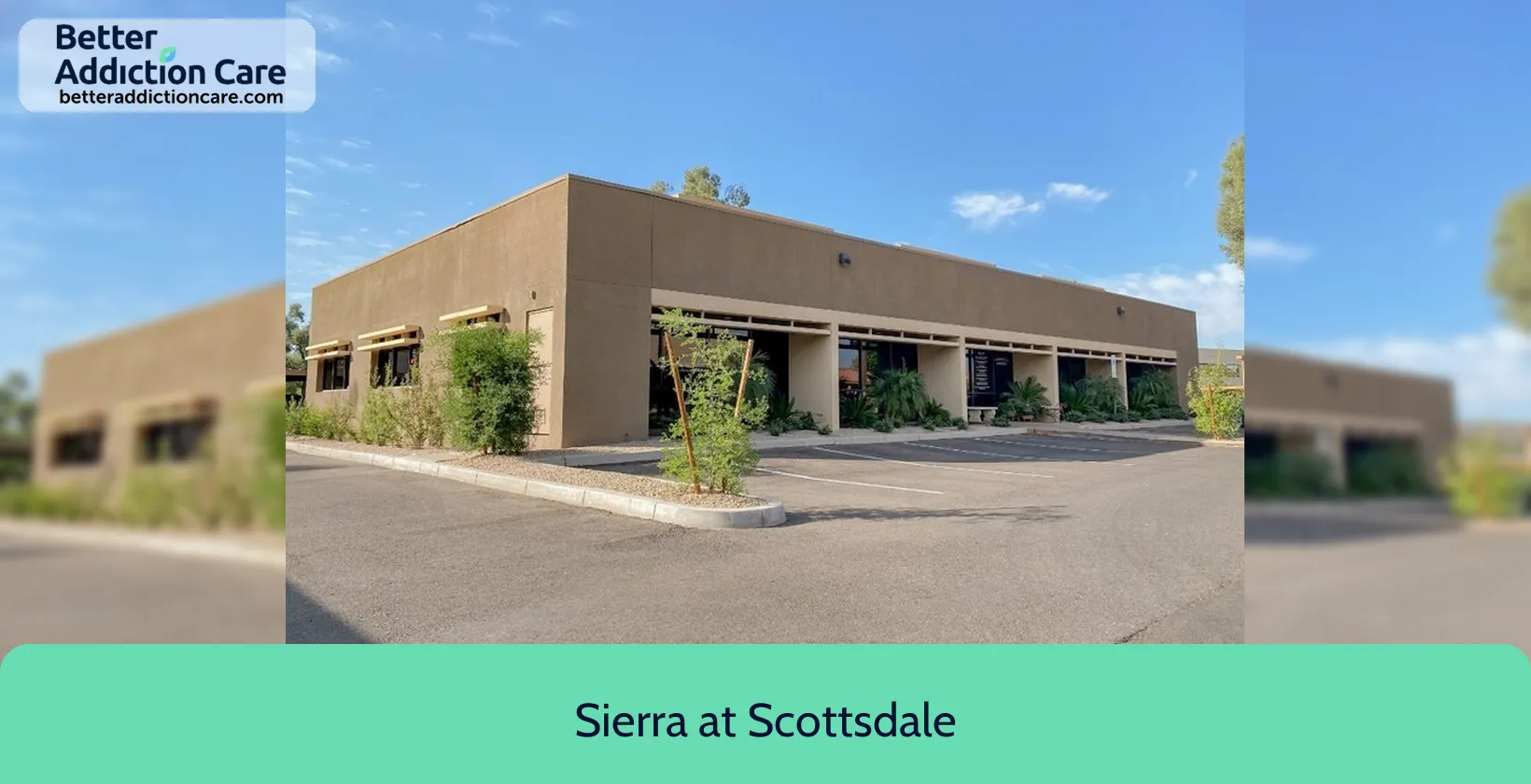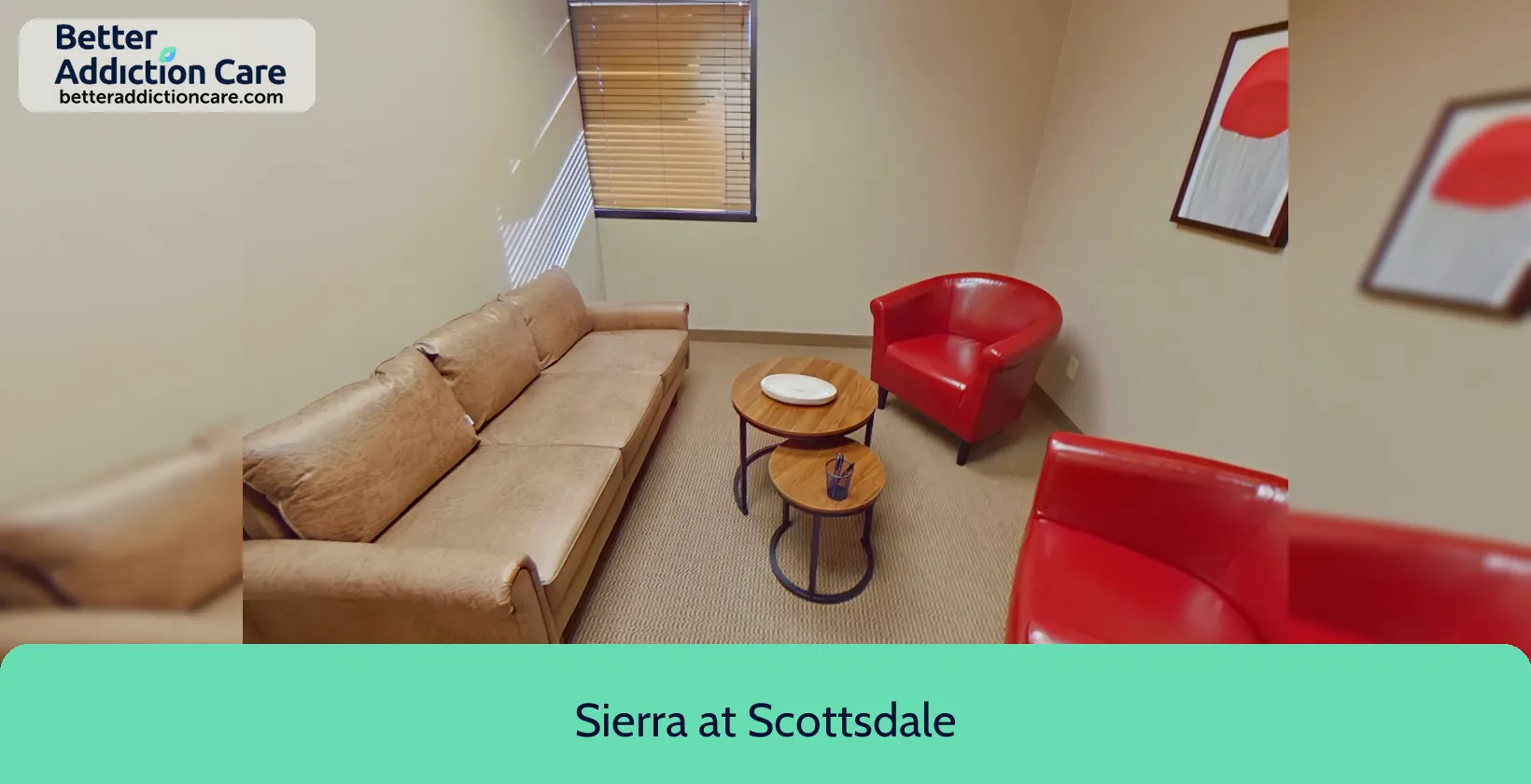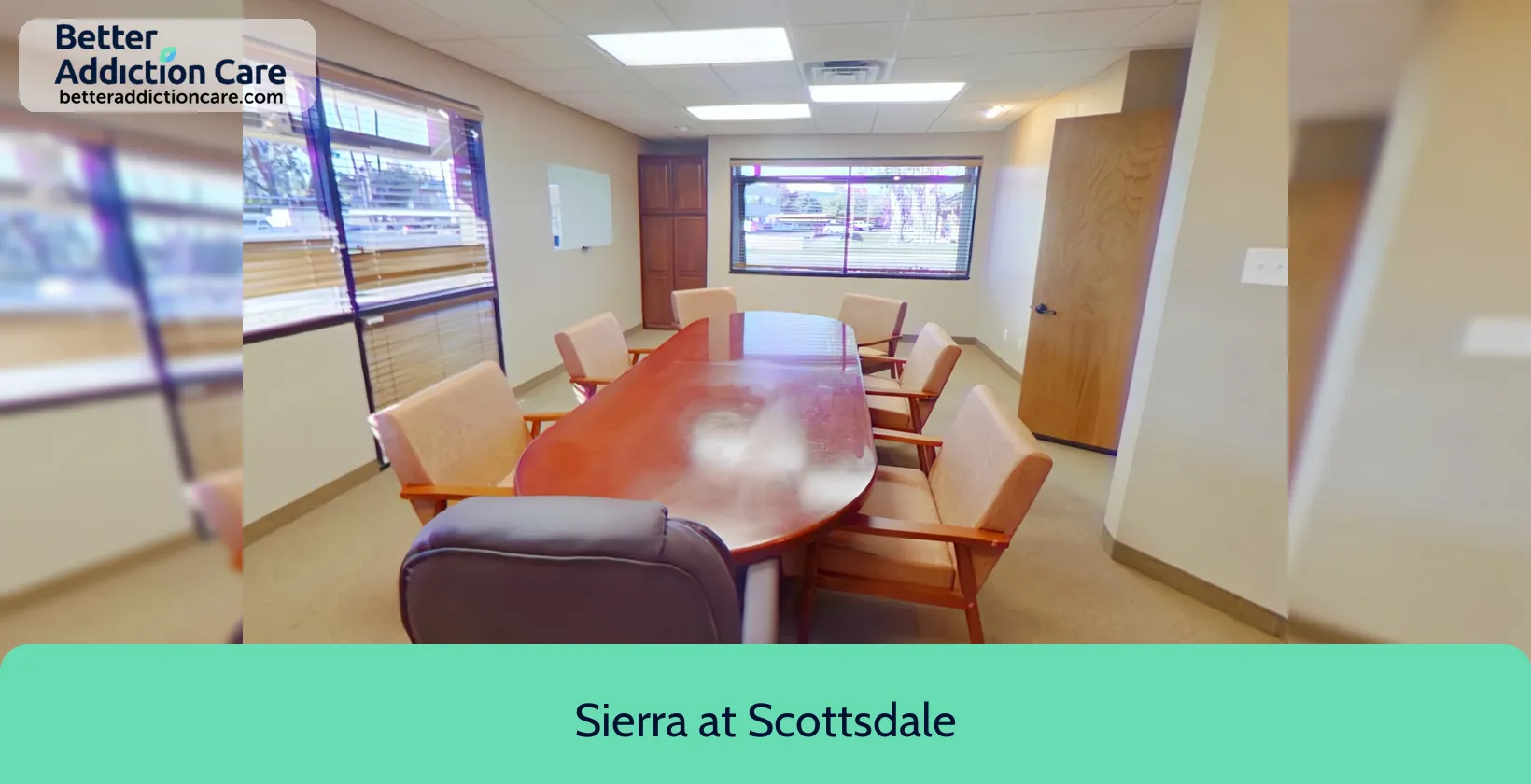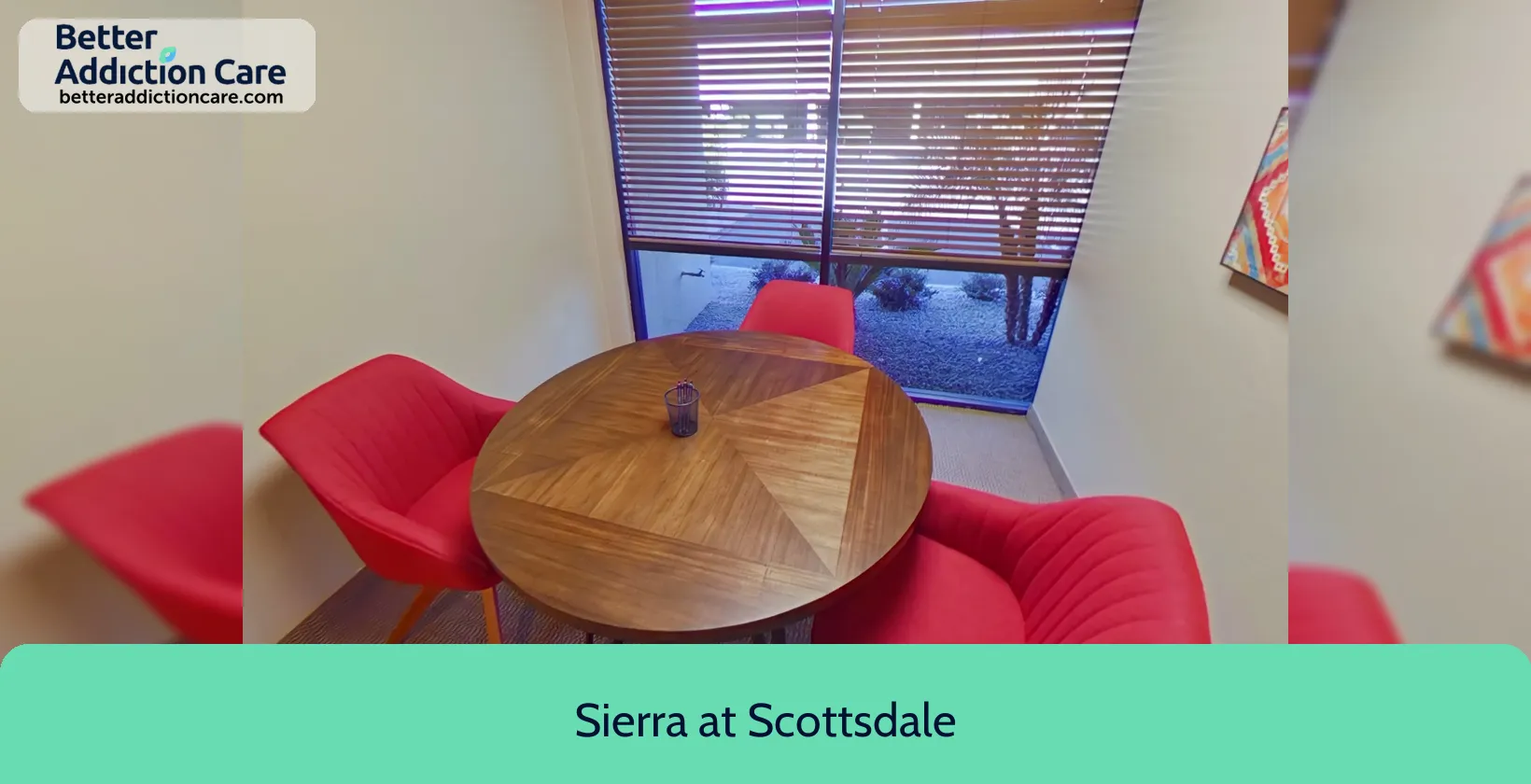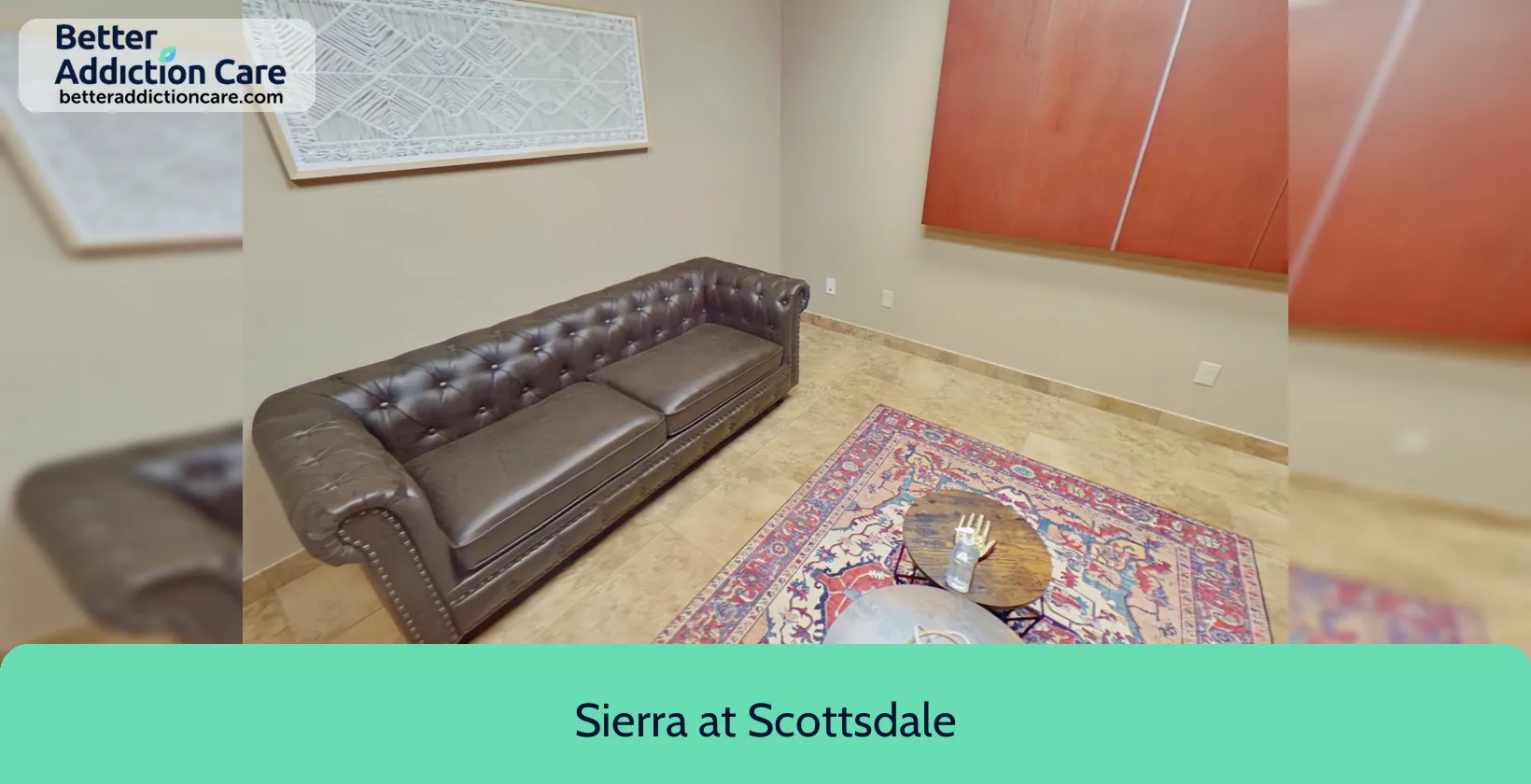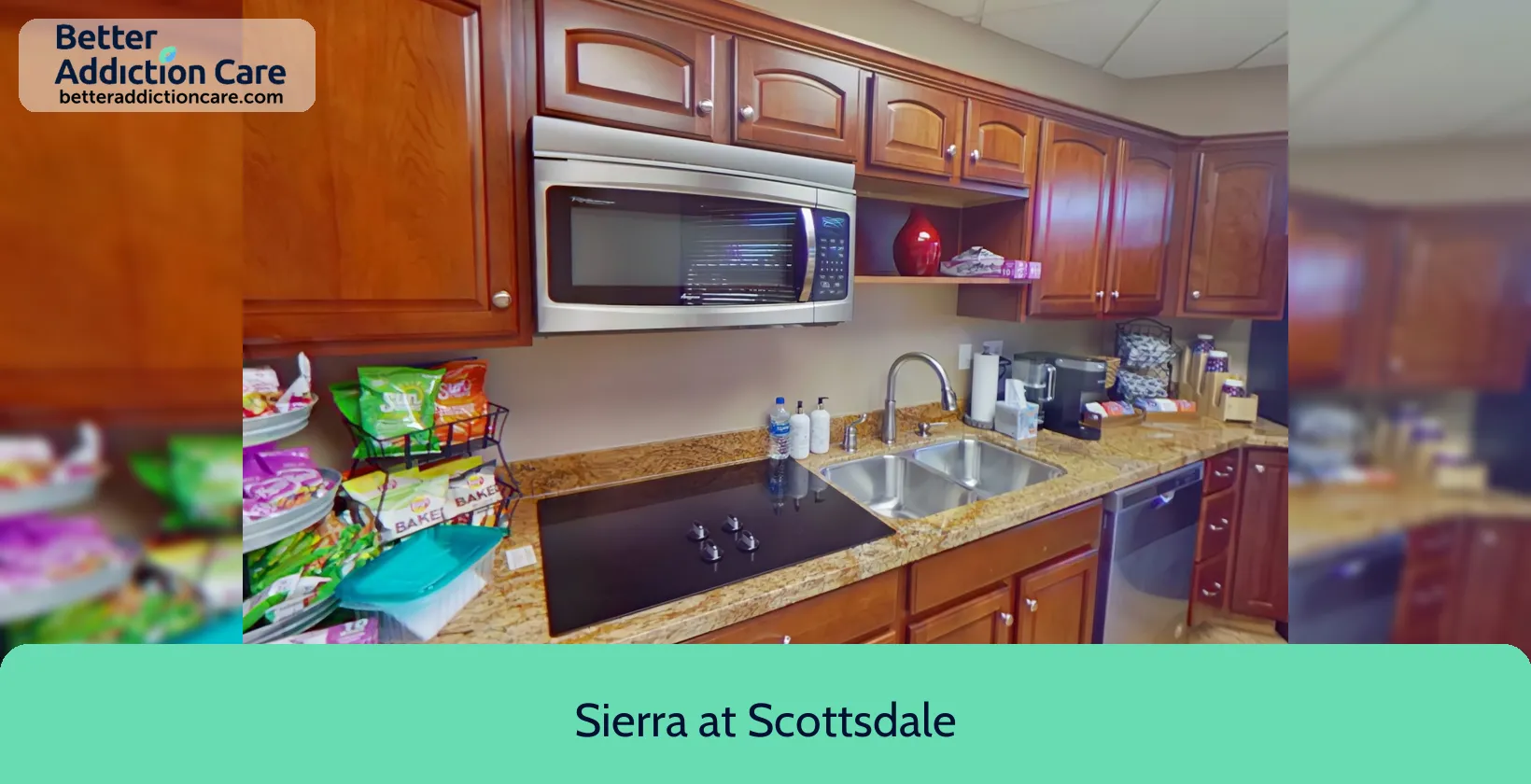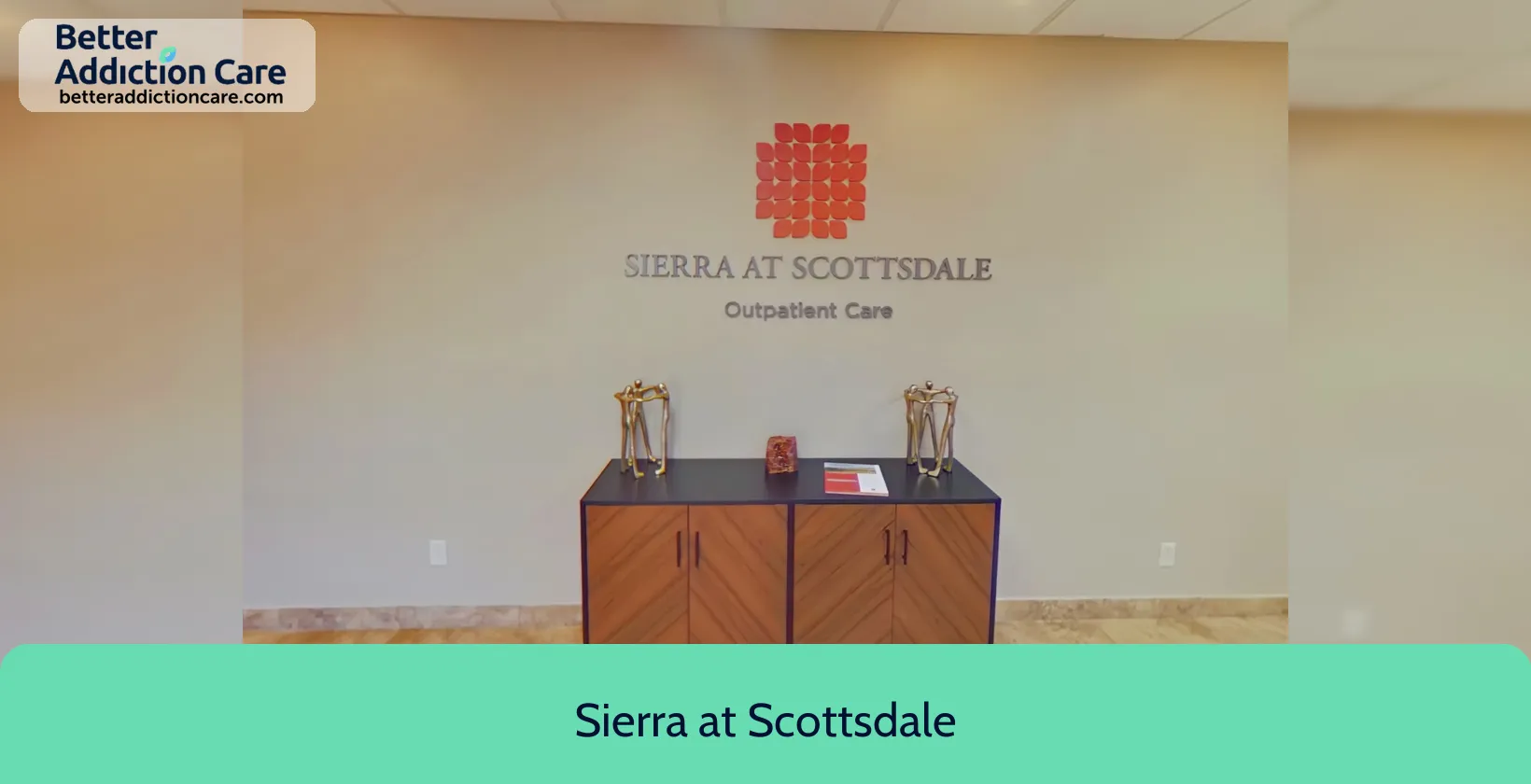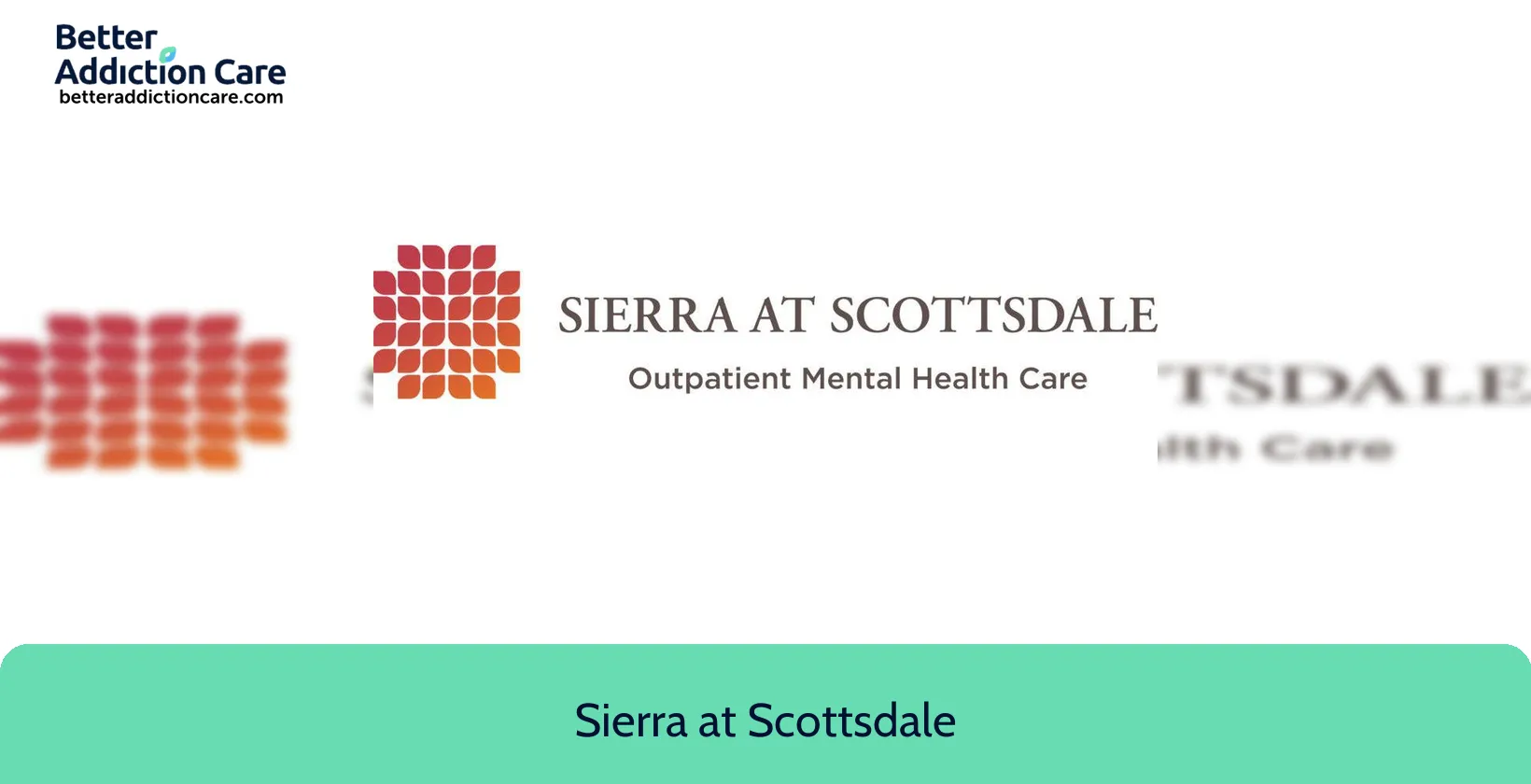Sierra at Scottsdale
Overview
Sierra at Scottsdale is an accredited mental health treatment center that provides outpatient treatment for men and women between 18 and 65+ years of age. As part of their special programs, Sierra at Scottsdale treats clients with co-occurring mental and substance use disorders, veterans, and active duty military. To help patients achieve sobriety, Sierra at Scottsdale provides intake assessments. Afterward, patients receive individual psychotherapy, couples/family therapy, and cognitive behavioral therapy during treatment. Sierra at Scottsdale is located in Scottsdale, Arizona, providing treatment for people in Maricopa County, accepting cash or self-payment, private health insurance, and federal military insurance (e.g., tricare).
Sierra at Scottsdale at a Glance
Payment Options
- Cash or self-payment
- Private health insurance
- Federal military insurance (e.g., TRICARE)
Assessments
- Screening for tobacco use
- Comprehensive mental health assessment
- Comprehensive substance use assessment
- Outreach to persons in the community
- Screening for mental disorders
Age Groups
- Seniors or older adults
- Young adults
- Adults
- Seniors
Ancillary Services
- Case management service
- Diet and exercise counseling
- Family psychoeducation
- Suicide prevention services
- Domestic violence services, including family or partner
Highlights About Sierra at Scottsdale
7.35/10
With an overall rating of 7.35/10, this facility has following balanced range of services. Alcohol Rehabilitation: 8.00/10, Drug Rehab and Detox: 7.23/10, Insurance and Payments: 6.00/10, Treatment Options: 8.18/10.-
Treatment Options 8.18
-
Alcohol Rehabilitation 8.00
-
Drug Rehab and Detox 7.23
-
Insurance and Payments 6.00
Accreditations
State mental health department:
State mental health department accreditation refers to the process of evaluating and certifying the quality and standards of a state's mental health department, ensuring that it provides high-quality services and meets specific criteria for mental health care. The accreditation process is performed by a third-party organization and helps to improve the overall care and treatment of individuals with mental health conditions.
State department of health:

State Licenses, issued by government agencies, authorize rehabilitation organizations to legally operate within designated geographical areas. The specific licenses required for operation are typically determined by both the nature of the rehabilitation program provided by the facility and its physical location.
Drug Enforcement Agency (DEA):
DEA accreditation refers to the process by which a law enforcement agency is recognized by the Drug Enforcement Agency (DEA) as having met specific training, operational, and resource requirements necessary to participate in DEA-led drug enforcement efforts. This accreditation allows the agency to perform DEA-related tasks such as conducting investigations, executing federal search warrants, and participating in joint task forces.
Treatment At Sierra at Scottsdale
Treatment Conditions
- Alcoholism
- Mental health treatment
- Substance use treatment
Care Levels
- Partial Hospitalization Program
- Outpatient
- Outpatient day treatment or partial hospitalization
- Intensive outpatient treatment
- Aftercare
Treatment Modalities
- Individual psychotherapy
- Couples/family therapy
- Cognitive behavioral therapy
- Dialectical behavior therapy
- Integrated Mental and Substance Use Disorder treatment
Ancillary Services
Languages
- Sign language services for the deaf and hard of hearing
Additional Services
- Pharmacotherapies administered during treatment
- Mentoring/peer support
- Breathalyzer or blood alcohol testing
Special Programs
- Clients with co-occurring mental and substance use disorders
- Veterans
- Active duty military
- Members of military families
- Pregnant/postpartum women
Get Help Now
Common Questions About Sierra at Scottsdale
Contact Information
Other Facilities in Scottsdale

6.96

7.86

7.75
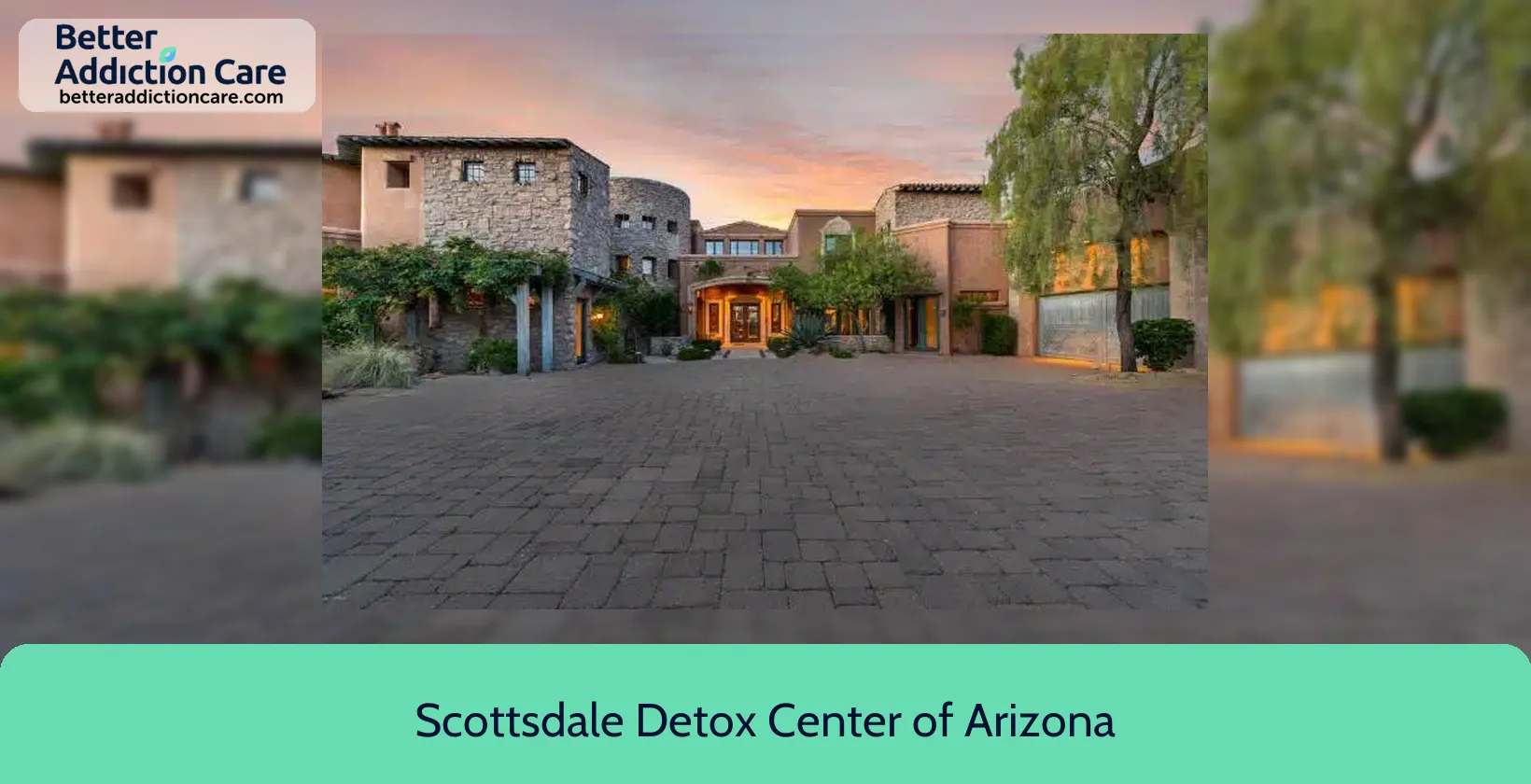
6.75
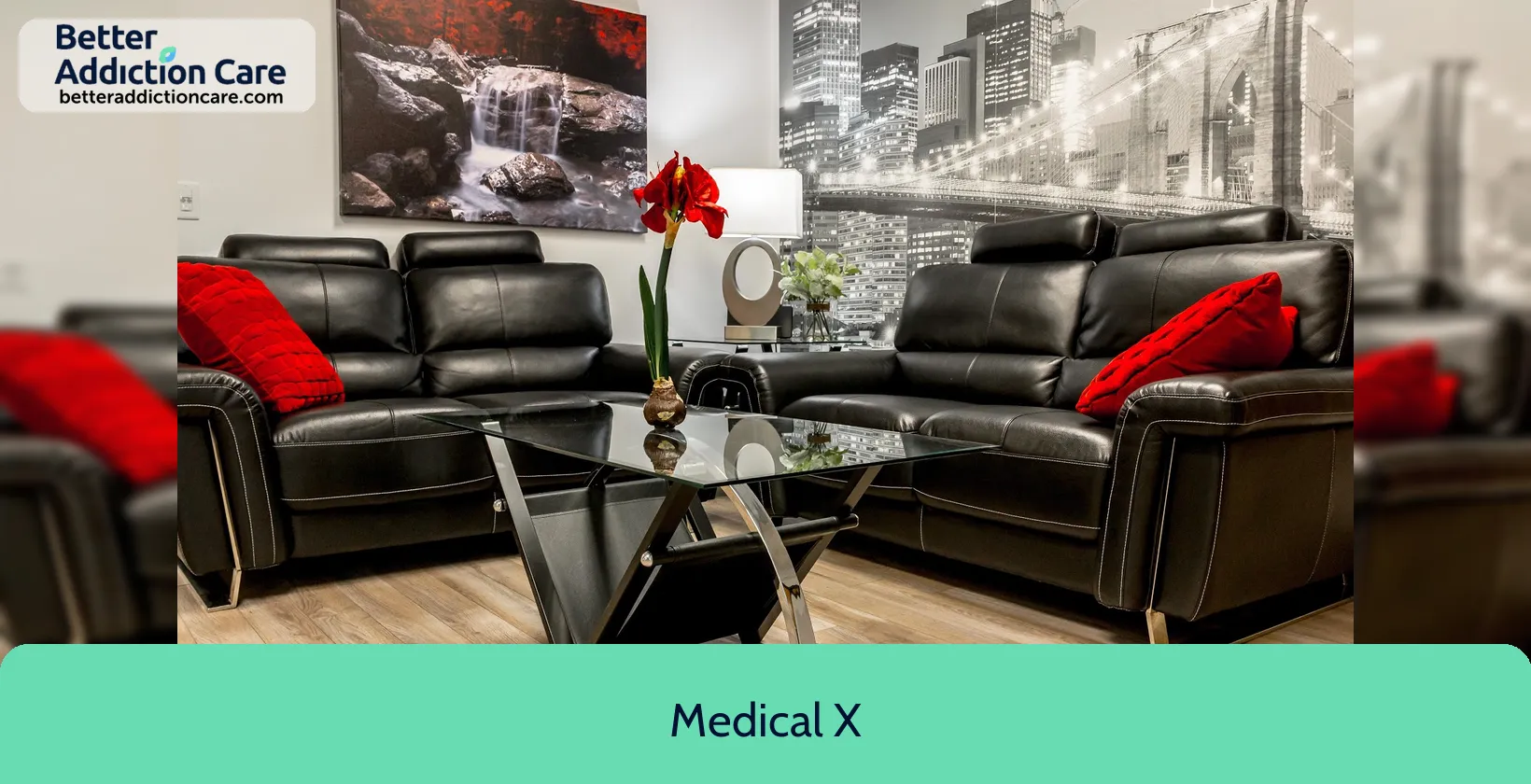
7.18
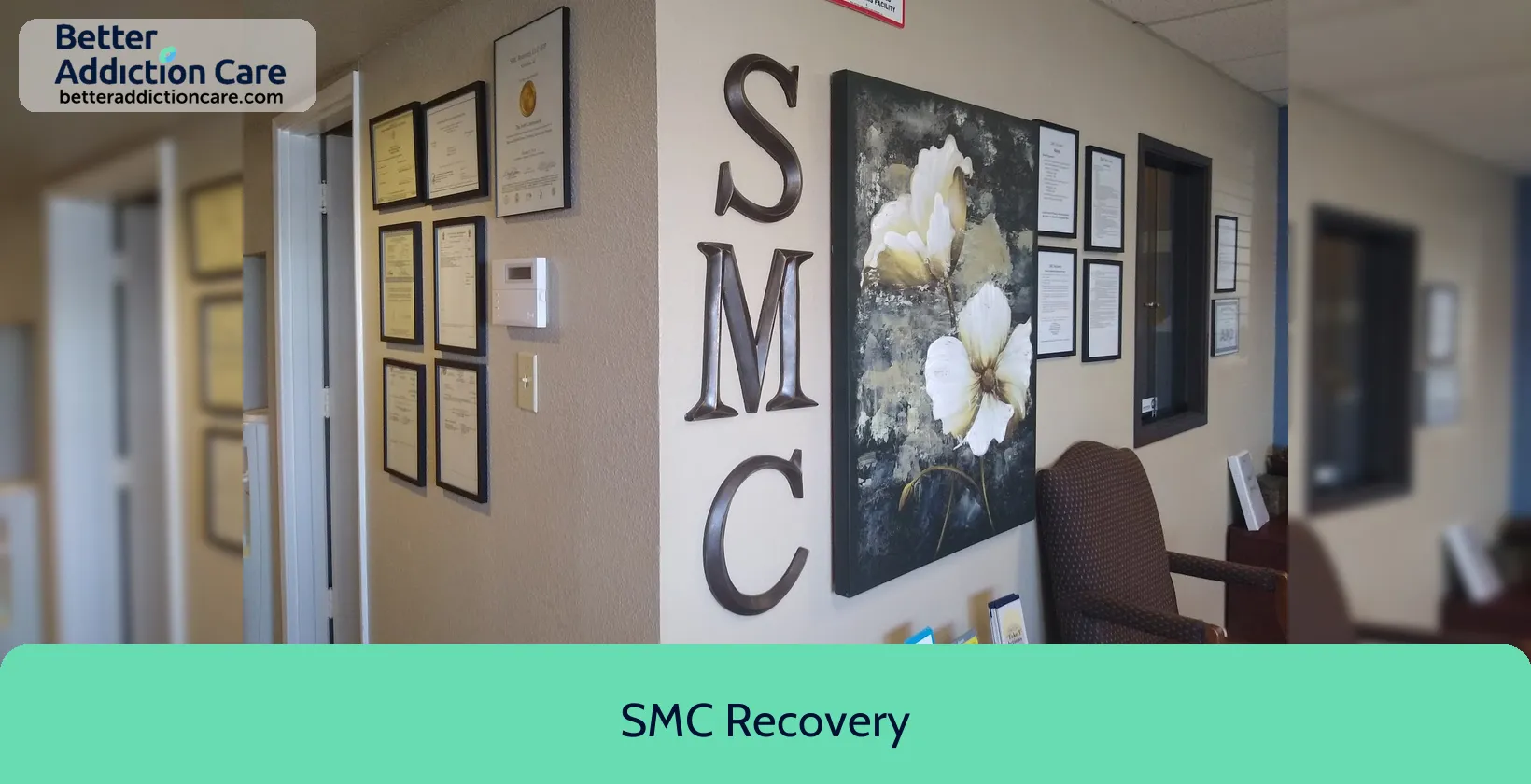
7.28
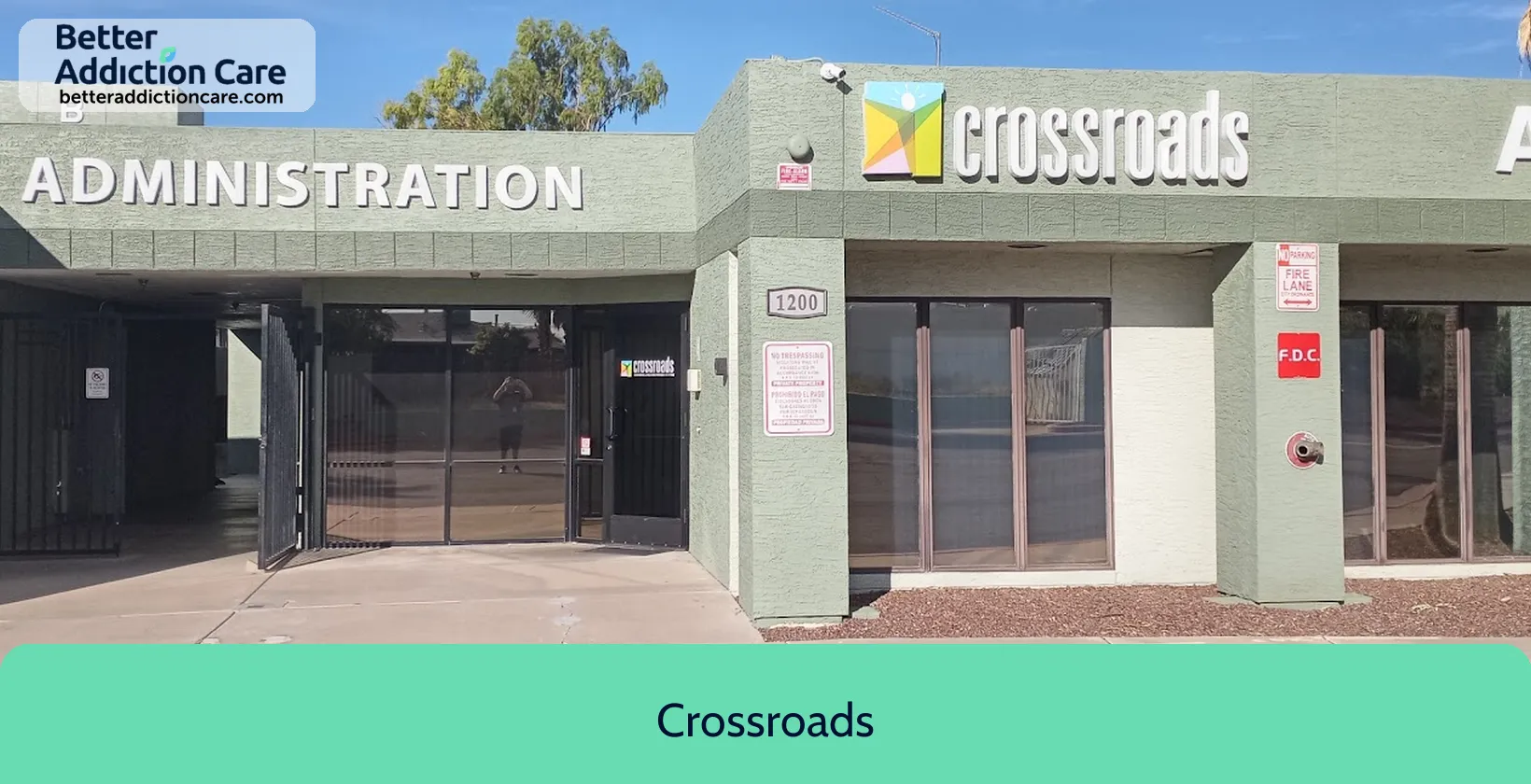
7.43
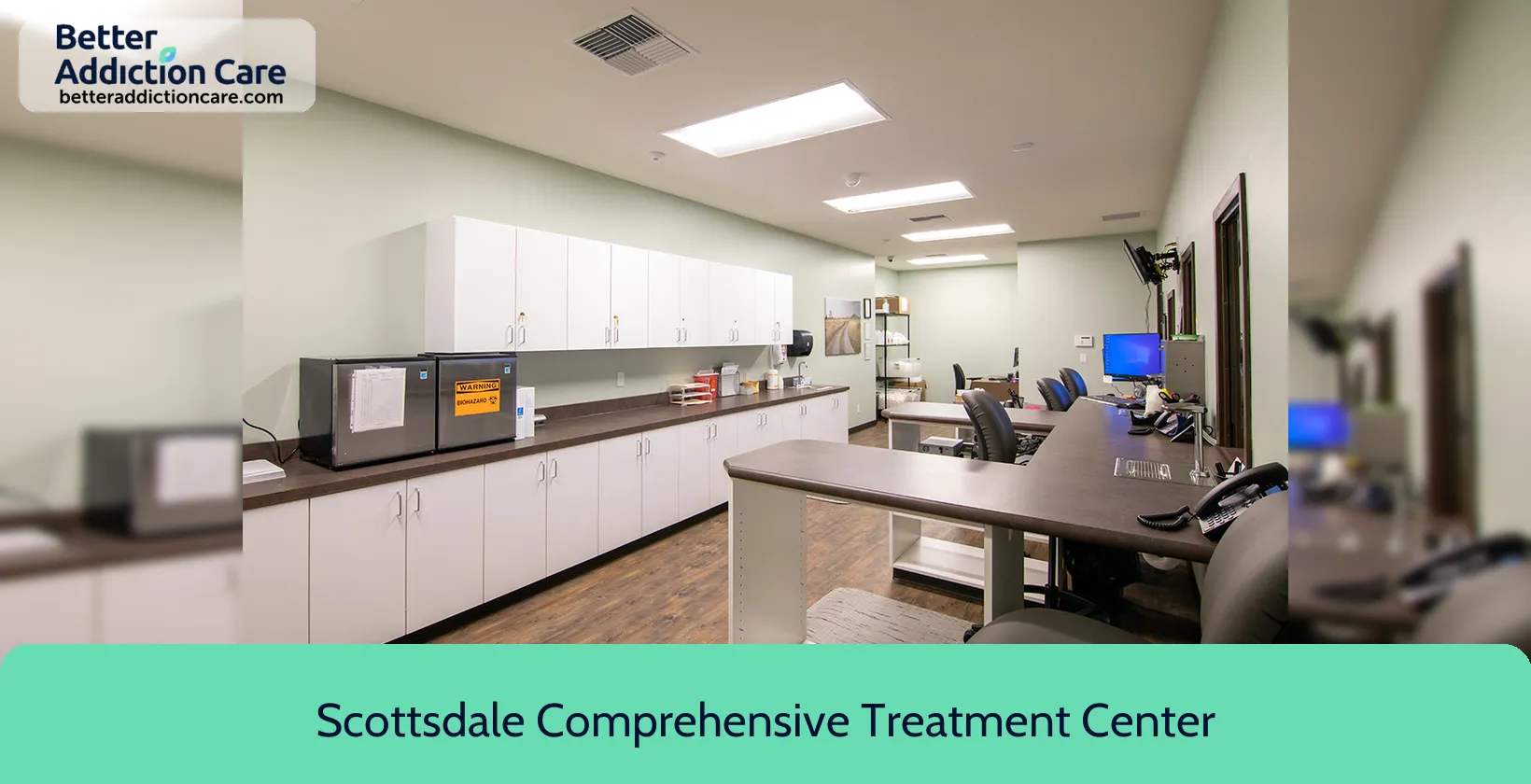
6.75
Browse rehab centers near Scottsdale and in other cities across Arizona
DISCLAIMER: The facility name, logo and brand are the property and registered trademarks of Scottsdale Comprehensive Treatment Center, and are being used for identification and informational purposes only. Use of these names, logos and brands shall not imply endorsement. BetterAddictionCare.com is not affiliated with or sponsored by Scottsdale Comprehensive Treatment Center.
